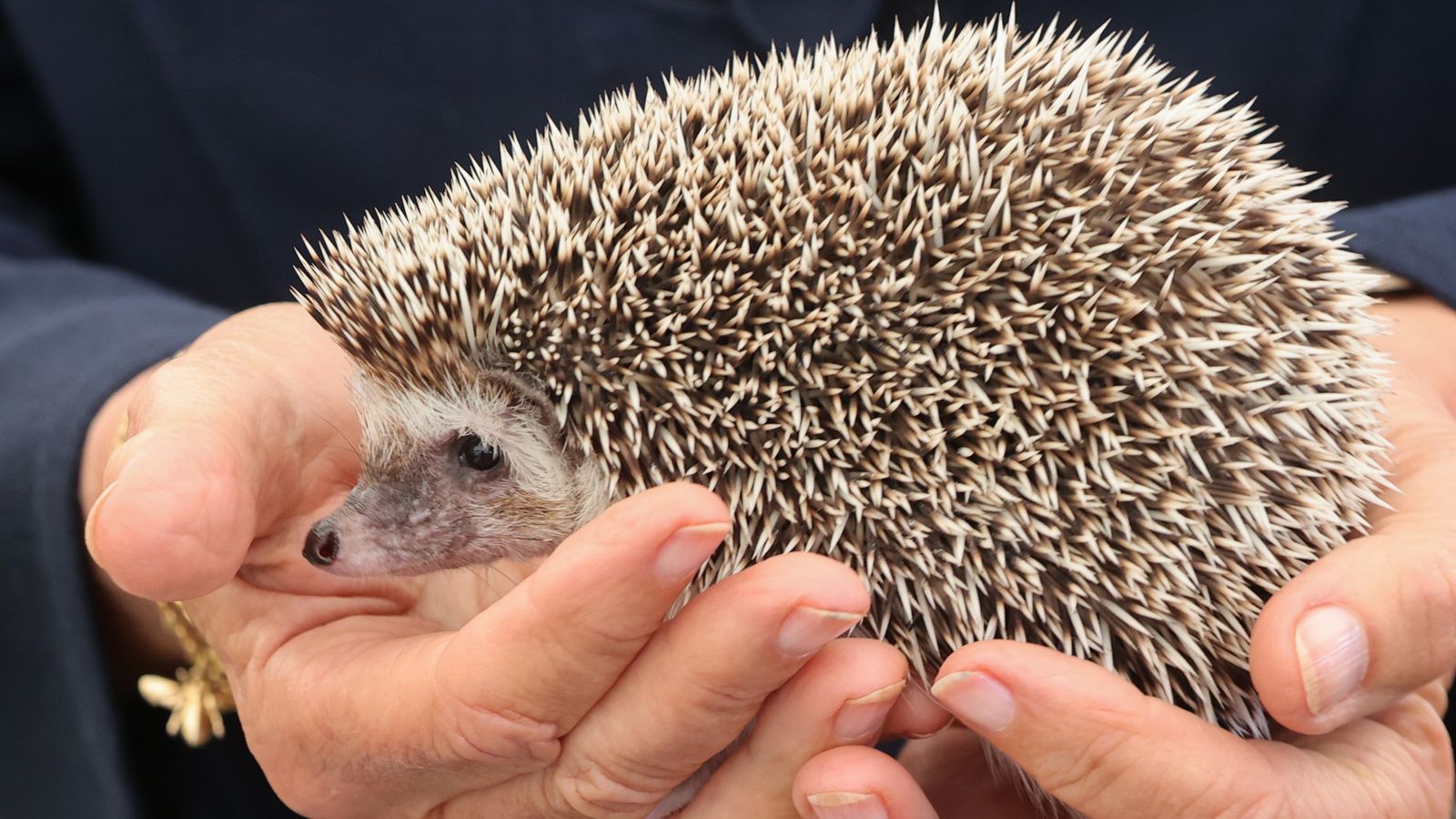There has been a dramatic decline in hedgehog numbers in the countryside in the last 20 years, but things are more encouraging in towns and cities, a new study has suggested.
The latest State Of Britain’s Hedgehogs report by the People’s Trust for Endangered Species (PTES) and the British Hedgehog Preservation Society (BHPS) draws on a number of surveys carried out in rural and urban areas.
It says that between 30% to 75% of the hedgehog population has been lost in the countryside in the last two decades, with the largest falls in the eastern half of England.
However in urban areas the picture is of a stable population that might be recovering, albeit from a low base, after a prolonged period of decline.
Sky News video: Queen’s Brian May talks hedgehogs
Nida Al-Fulaij, conservation research manager at PTES and one of the report’s authors, said the charity wants to work with farmers to make landscapes more hedgehog-friendly.
“If you picture a landscape, the greater mosaic of different habitats and varied features, and varied species within those features, the better it is not just for hedgehogs but for everything.”
COVID-19: Over-75s and vulnerable adults to be offered another COVID jab in spring
COVID: Remaining restrictions in England will be scrapped on Thursday and free testing to end in April, PM reveals
UK weather: Thousands still without power as minister warns storms could become feature of UK climate
She said improving hedgerows, the habitat that gives hedgehogs their name, would help, as well as not using insecticides on field margins to ensure a ready supply of slugs, caterpillars and bugs for food.
Ms Al-Fulaij added that despite the better news in urban areas, action was still needed and everyone could help.
“Don’t Astroturf your garden; if you can make some rough and wild areas as hedgehog-friendly as possible, then that’s great,” she said.






















